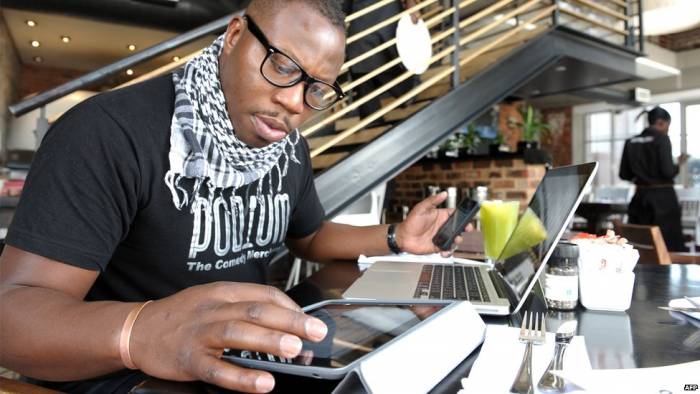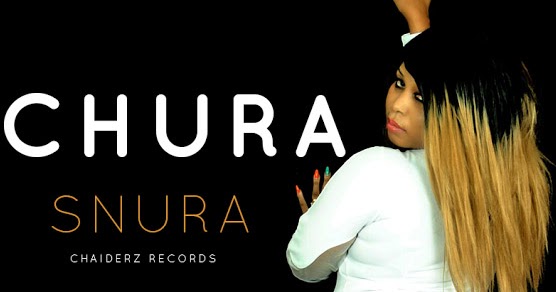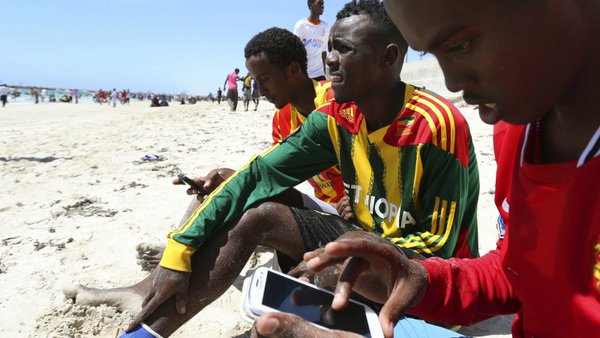
source
As an increasing number of people is gaining access to digital media, it has become harder for governments to censor the content that is distributed online. The Internet is not the safest place in the world, especially for children (predators, piracy, copyright violators, etc.). Yet, how far should governments go in protecting users from content the deem inappropriate? At what point are free-speech rights violated?
Making content “healthy for all”
Ezekiel Mutua, head of the Kenya Film Classification Board,the organization that regulates all visual content in the nation, announced that he had requested Google to pull down a video they found inappropriate – a Kenyan remix of the Macklemore song “Same Love,” which advocates for gay rights. The remix and video was made by Kenyan hip hop group Art Attack. The video shows gay couples being intimate with each other, as well as footage of an LGBT parade and homophobic Kenyan newspaper headlines. Homosexuality is a criminal act in Kenya. The board’s statement on the matter said that: “
“all film and broadcast content is required by law to conform to national moral values” and that they “pledge to continue working together to bring down such inappropriate content.”
Mutua claimed that “This is part of making sure that content is healthy for all.” While Google refused to pull down the video, the company did agree to flag it as potentially inappropriate content.

Breaching the moral fabric of society
In Tanzania, the artist Snura Mushi caused quite a stir. Her music video to the song “Chura” contained twerking. The Ministry of Information, Culture, Arts and Sports swiftly banned the video and the song from mainstream and social media. The video was banned for breaching the moral fabric of society and violating the country’s traditions. Mushi’s public shows are also temporarily banned. She has been ordered to remove the video from YouTube.
“She has also been instructed not to distribute or release her controversial and immoral video in other social media such as Whatsapp, Instagram, Facebook and several others,” Zawadi Msalla, The ministry’s Head of Information and Communication, said.

Restricting political dissent
Expressing political views online is highly restricted in certain countries like Ethiopia. The government will often use the nation’s Anti-Terror Proclamation to censor journalists and bloggers. In 2012, blogger Eskinder Nega – who often posted critical content – was accused of conspiring with a terrorist group to incite violence. He was sentenced to 18 years in jail. His conviction attracted international attention and several human rights groups called it unjust. Amnesty International has labelled him a prisoner of conscience. That year, Nega was awarded PEN America’s PEN/Barbara Goldsmith Freedom to Write Award.PEN America’s president said Nega was “that bravest and most admirable of writers, one who picked up his pen to write things that he knew would surely put him at grave risk.” Nega is just one of many journalists who have been charged with the Anti-Terror Proclamation. The Zone 9 blogging collective were also arrested under the proclamation. They too received a prestigious international award: the 2015 International Press Freedom Award.

Limiting access to what cannot be censored
Free services, including social media like Facebook and Twitter as well as over-the-top services like Skype and Whatsapp, allow users to connect with people all over the world through a third party. Social media is much harder for governments to censor and unrestricted content often flows freely. Instead, governments attempt to restrict access to them. Sometimes it is temporary, like when Uganda shut down all social media platforms during the presidential elections. President Museveni said this was done to prevent the spread of false results, but the opposition believed it was done to prevent the spread of the true results. Nigeria has a proposed bill that can be used to censor social media, with violators potentially facing jail and/or a big fine. Regarding over-the-top services, Ethiopia has passed a law restricting apps like Skype in order to protect domestic telecommunications providers. However, critics of the government believe this is just another form of censorship.

SEE ALSO: What’s Behind Banning Social Media In Some African Countries ?





